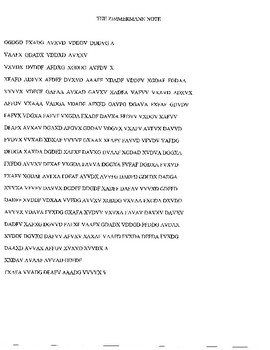

Then came the publication of the Zimmerman Telegram in which Germany proposed secret military and financial support for a Mexican attack on the United States, should it enter the war, and in exchange, Mexico would be free to annex “lost territory in Texas, New Mexico and Arizona.” Kennedy says the Zimmerman Telegram caused a stir but the major precipitating event for the declaration of war occurred in mid-March when “the Germans sank three American merchant ships in rapid succession-American ships under American flags with American crews-a direct attack on American sovereignty.” “Germany made the decision for reasons dealing with internal politics in January 1917 to go to unrestricted submarine warfare in defiance of the threats,” says historian Ross Kennedy, a professor at Illinois State University and author of “ The Will to Believe: Woodrow Wilson, World War I, and America’s Strategy for Peace and Security.” “Wilson had no choice but to break relations or he would have lost diplomatic credibility.”Įven after announcing the diplomatic break on February 3, 1917, Wilson still signaled that the United States would stay out of the war as long as the Germans did not target American vessels. The following year German saboteurs detonated the Black Tom munitions depot in Jersey City, New Jersey, killing seven people and strafing the Statue of Liberty with shrapnel.įor two years, Wilson repeatedly warned the Germans against a policy of unrestricted submarine warfare, which he considered a violation of international law and a pretext for a break in diplomatic relations.


Scores of American civilians had already been killed by German U-boats since the beginning of the war, including 128 in the 1915 sinking of RMS Lusitania.
ZIMMERMAN TELEGRAM SERIES
The rapid turn of events was brought on by a series of German actions that some historians believe left Wilson with little choice but to finally enter the war in Europe. On January 22, 1917, President Woodrow Wilson told a joint session of Congress that the United States must remain neutral in World War I to ensure “peace without victory.” Eleven weeks later, he returned to Congress to request a declaration of war against Germany. Woodrow Wilson asking Congress to declare war on Germany.


 0 kommentar(er)
0 kommentar(er)
